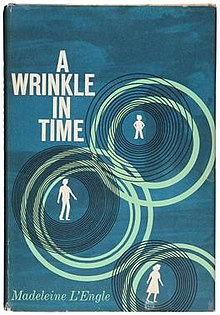 From Christianity Today:
From Christianity Today:Story, at its heart, is one of the primary modes in which God speaks to us, which means it’s one of the main vehicles for God’s truth. It’s also formative truth: The best, most ennobling stories have the power to shape our actions and play a vital role in moral and spiritual formation. “Rather than taking the child away from the real world,” wrote Madeleine L’Engle, author of A Wrinkle in Time, “such stories are preparation for living in the real world with courage and expectancy.”
In writing about her growing up years, L’Engle claimed that “the greatest gift my mother gave me, besides her love, was story. She was a wonderful storyteller, especially about her childhood in the South. . . . ‘Tell me a story,’ I would beg, and my mother would take me in imagination back to her world so different from mine.”
“I’m particularly grateful that I was allowed to read my Bible as I read my other books,” she wrote in Walking on Water, “to read it as story, that story which is a revelation of truth. People are sometimes kept from reading the Bible itself by what they are taught about it, and I’m grateful that I was able to read the Book with the same wonder and joy with which I read The Ice Princess or The Tempest.”
read more here @ Christianity Today

No comments:
Post a Comment